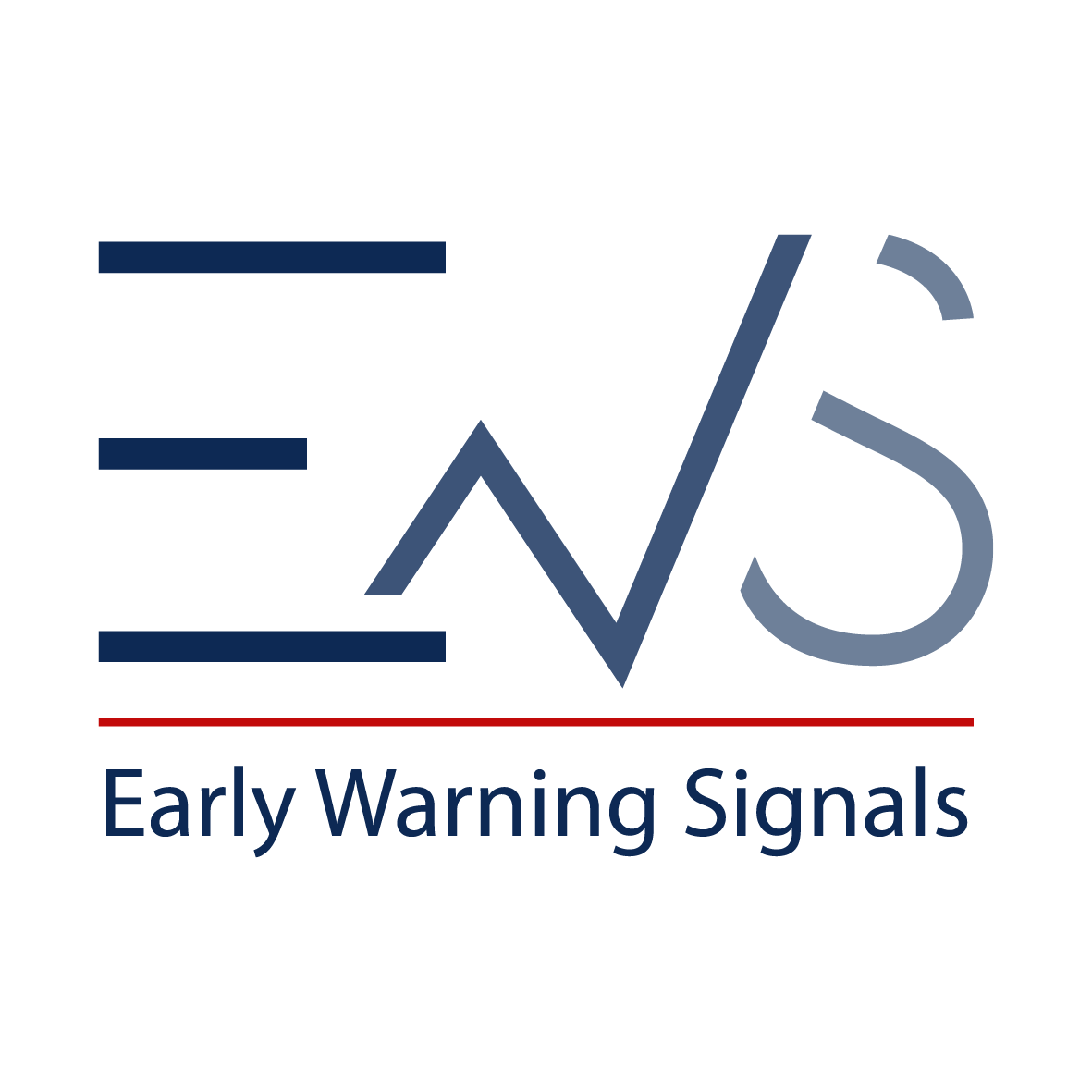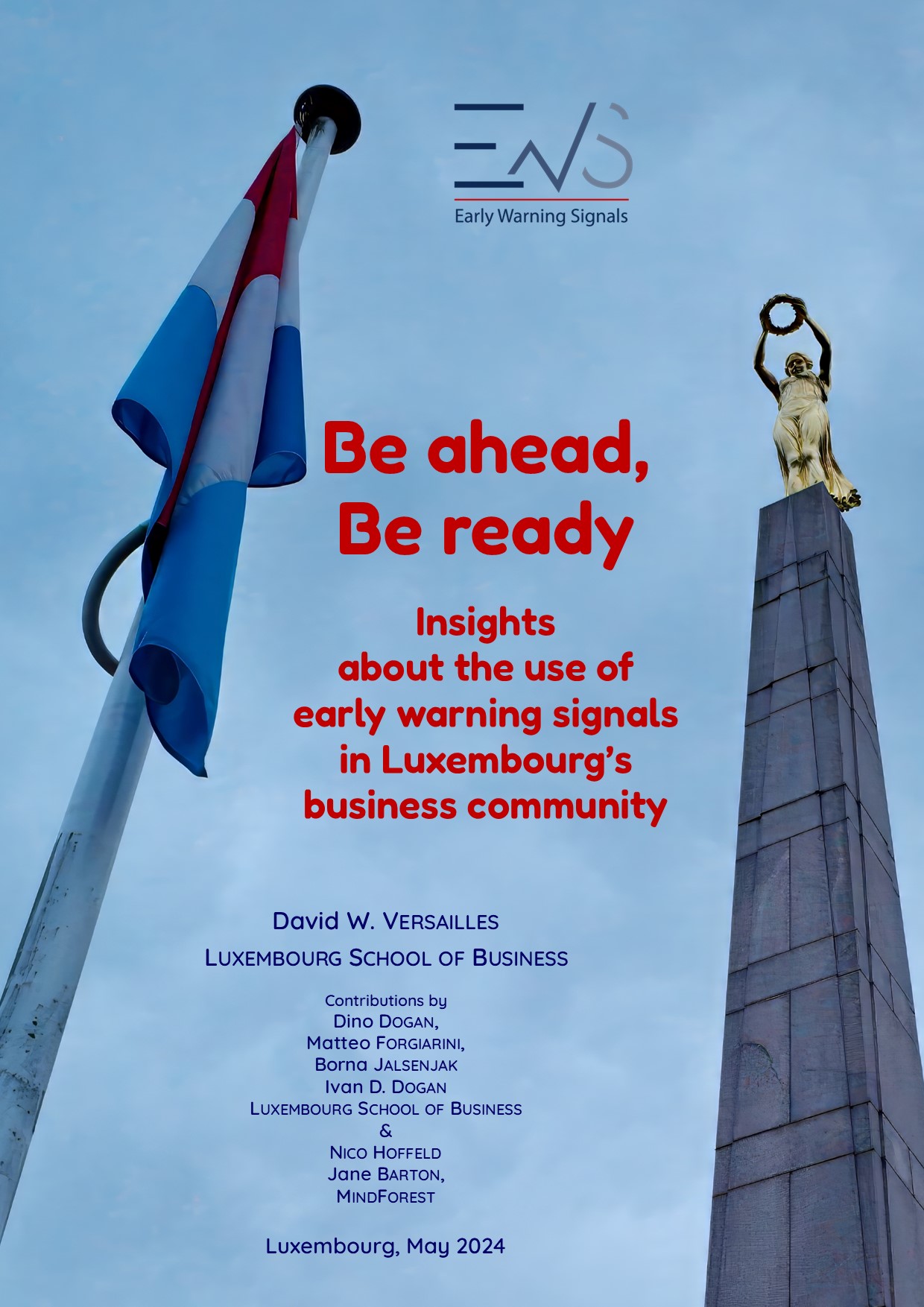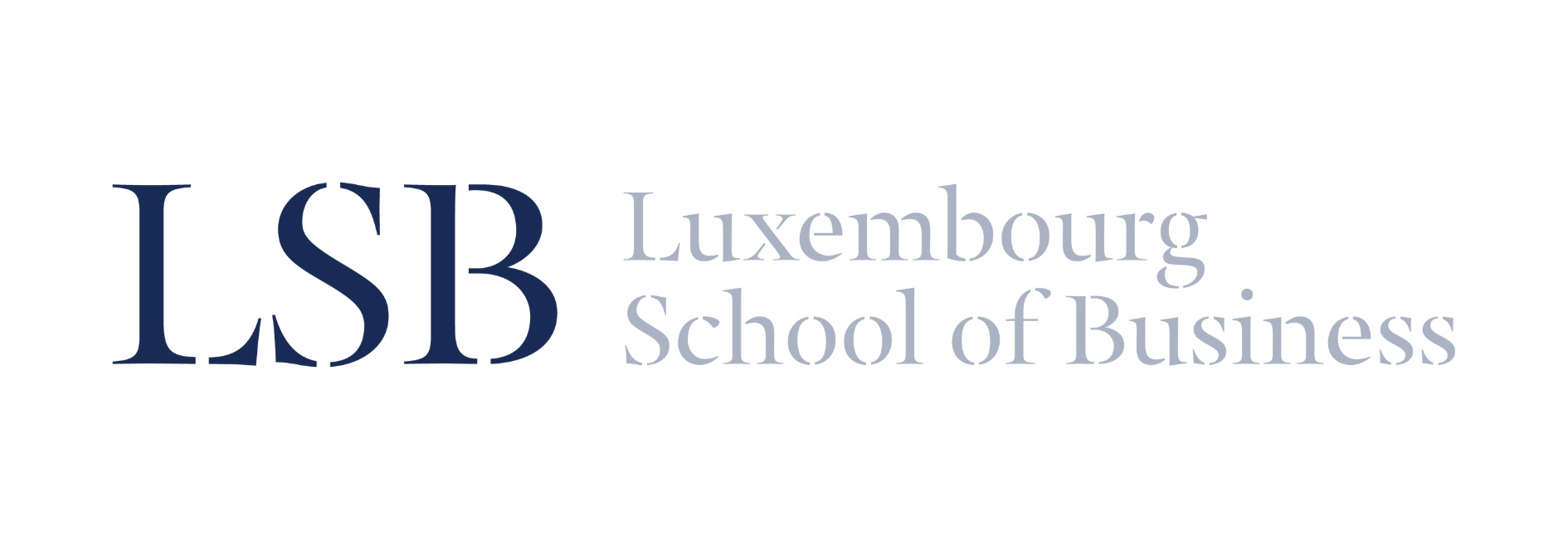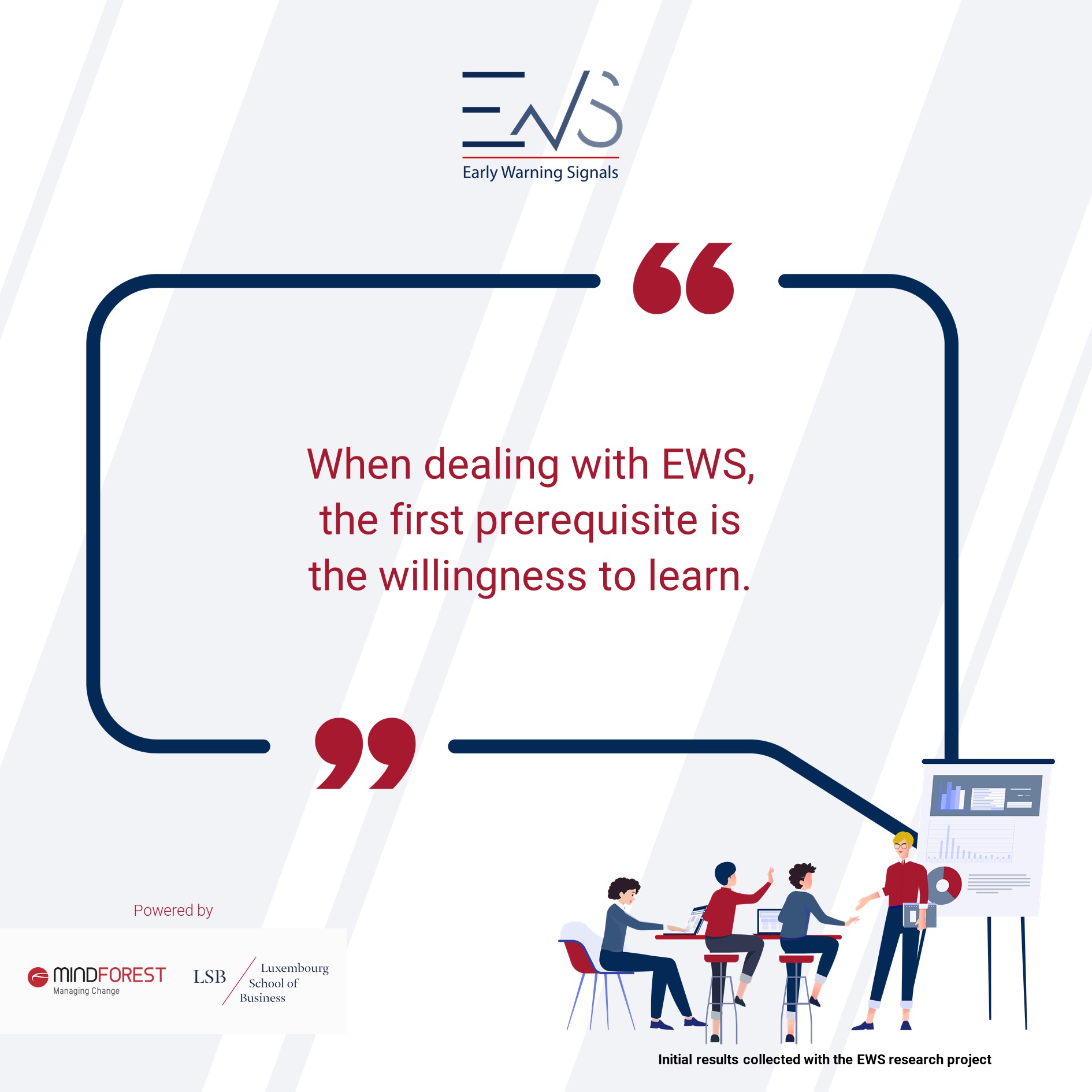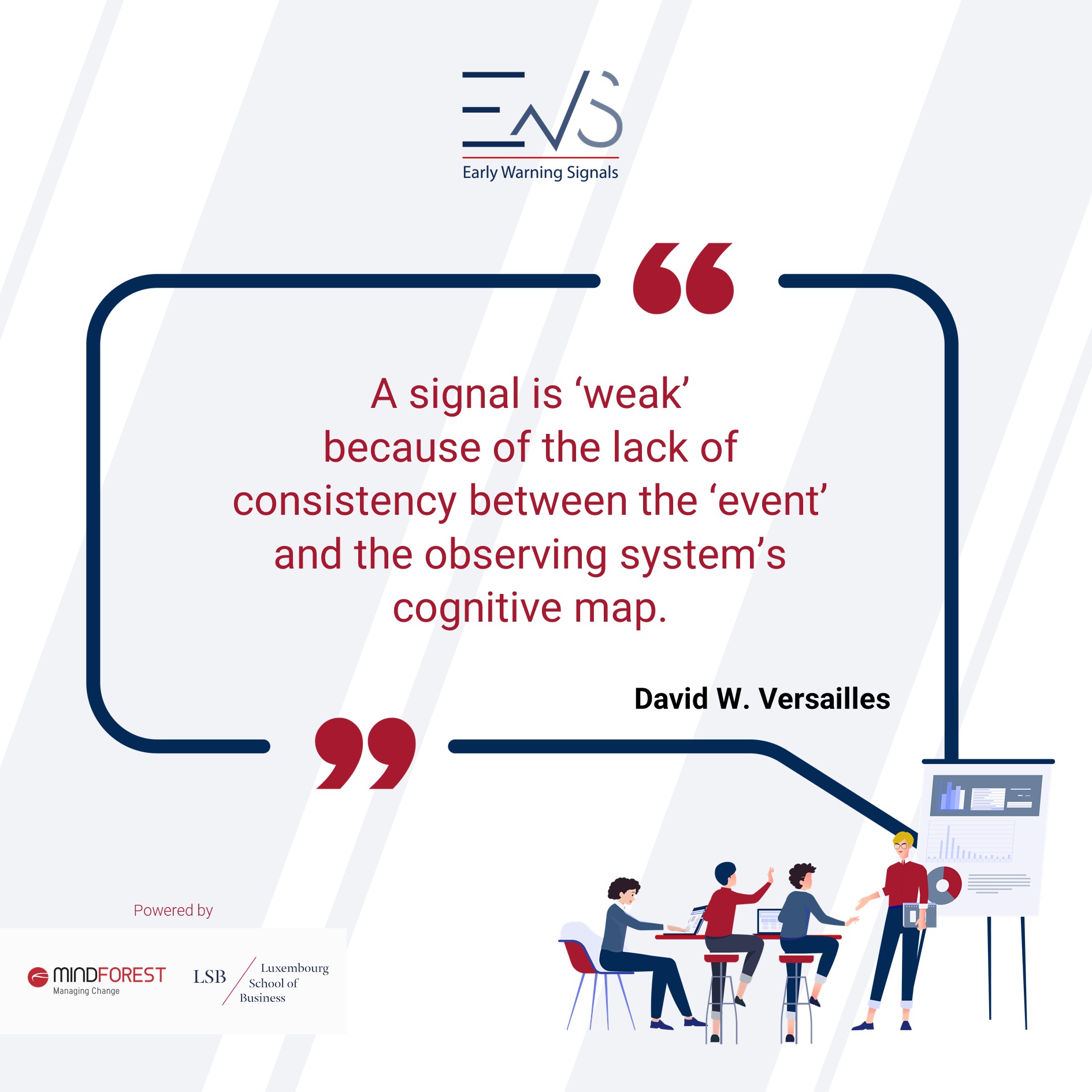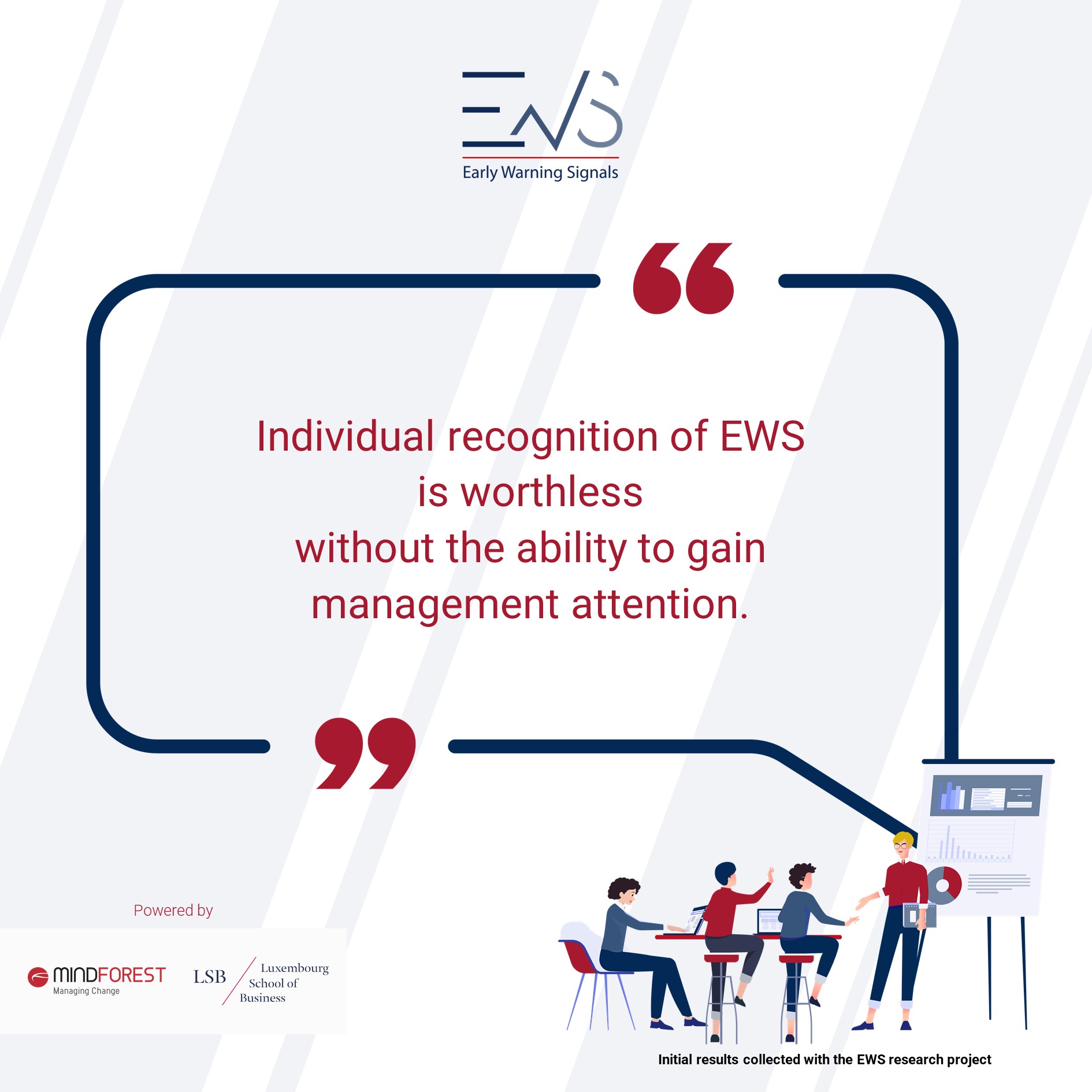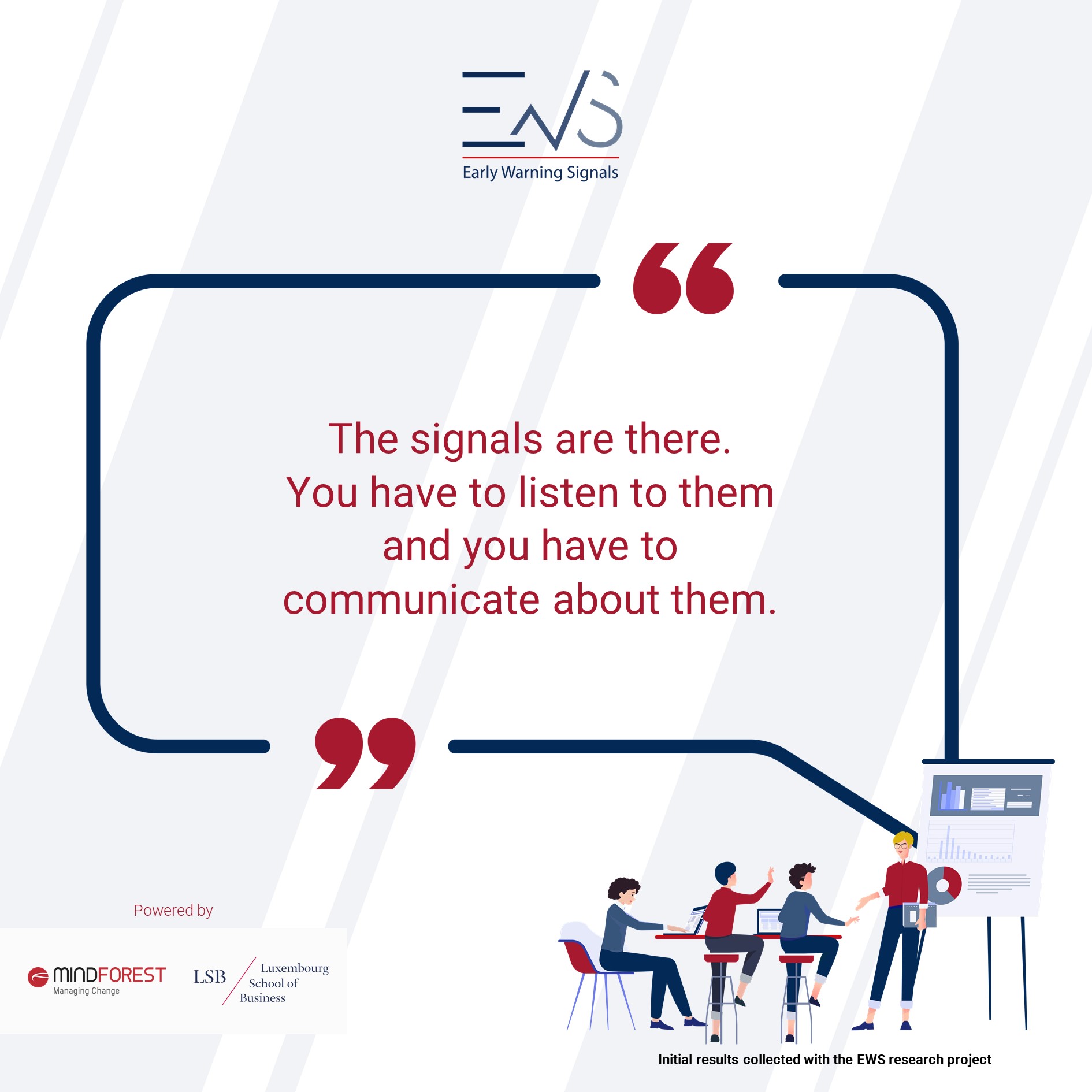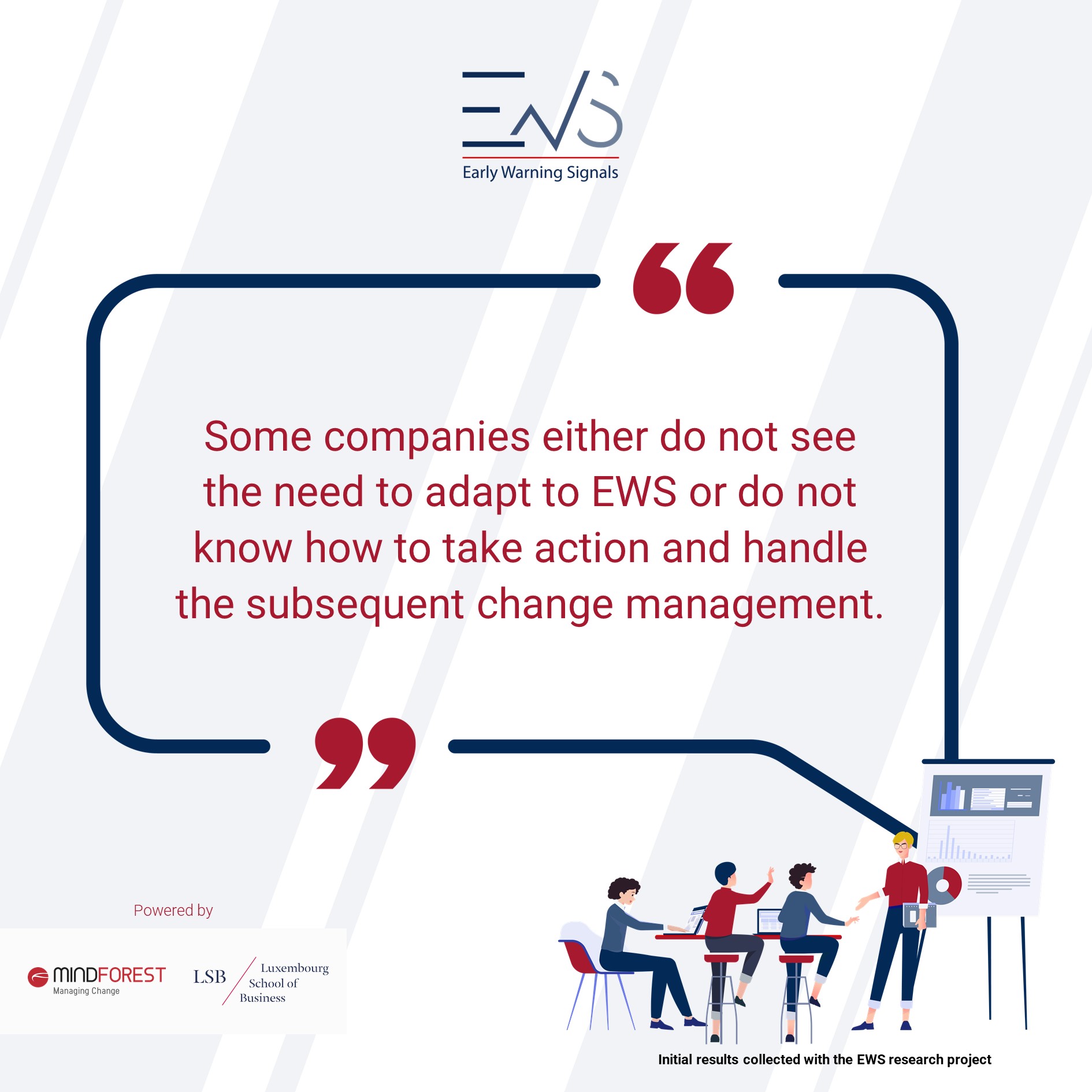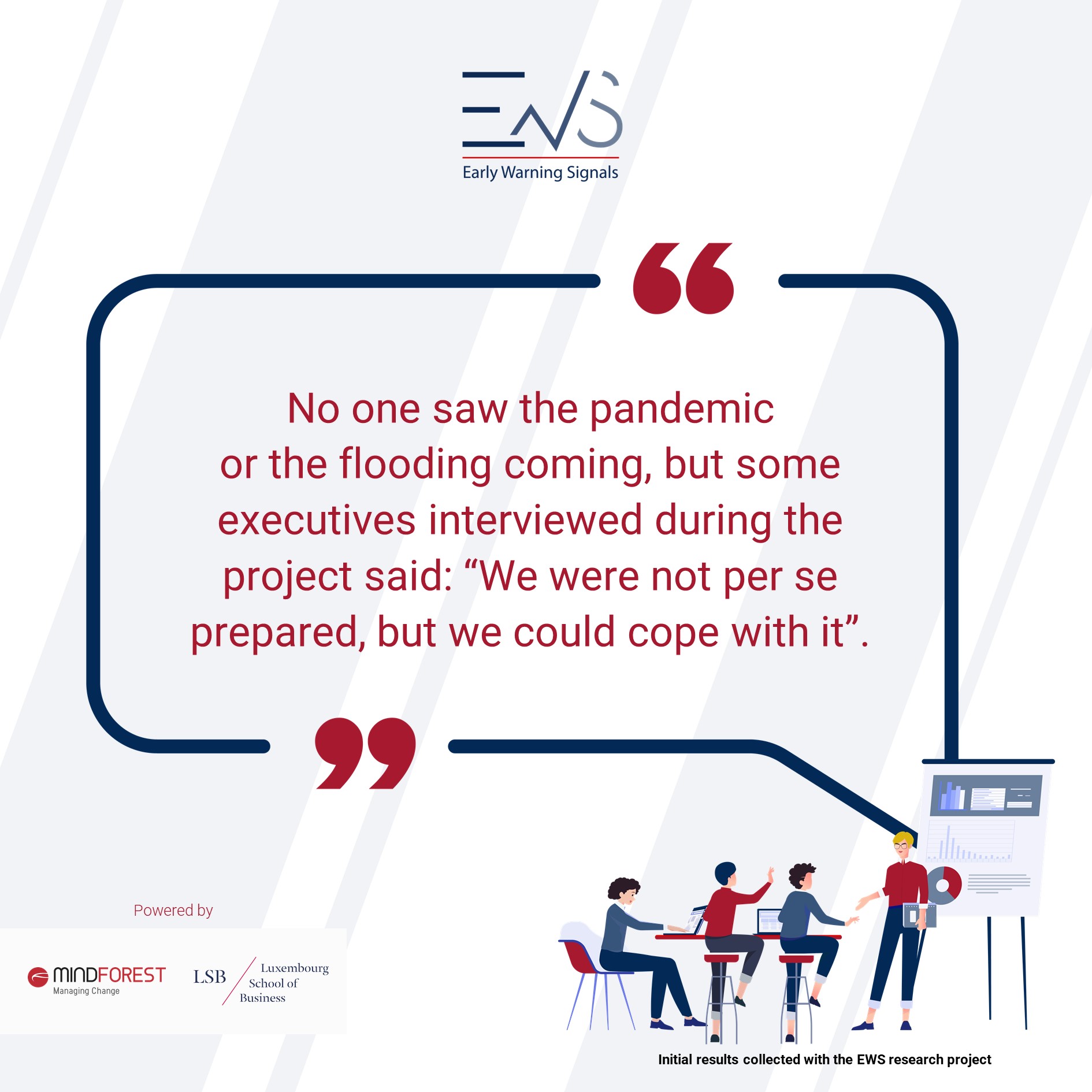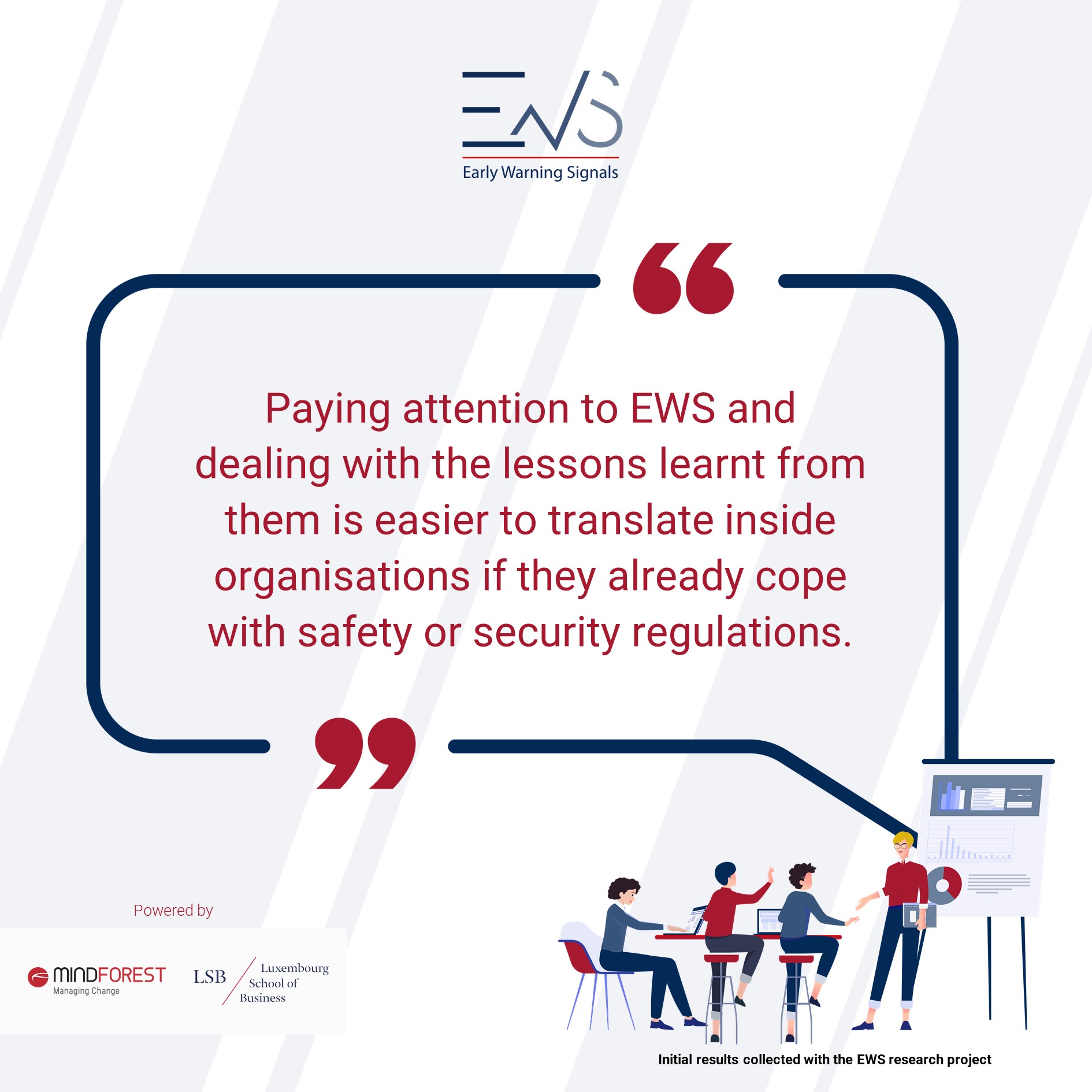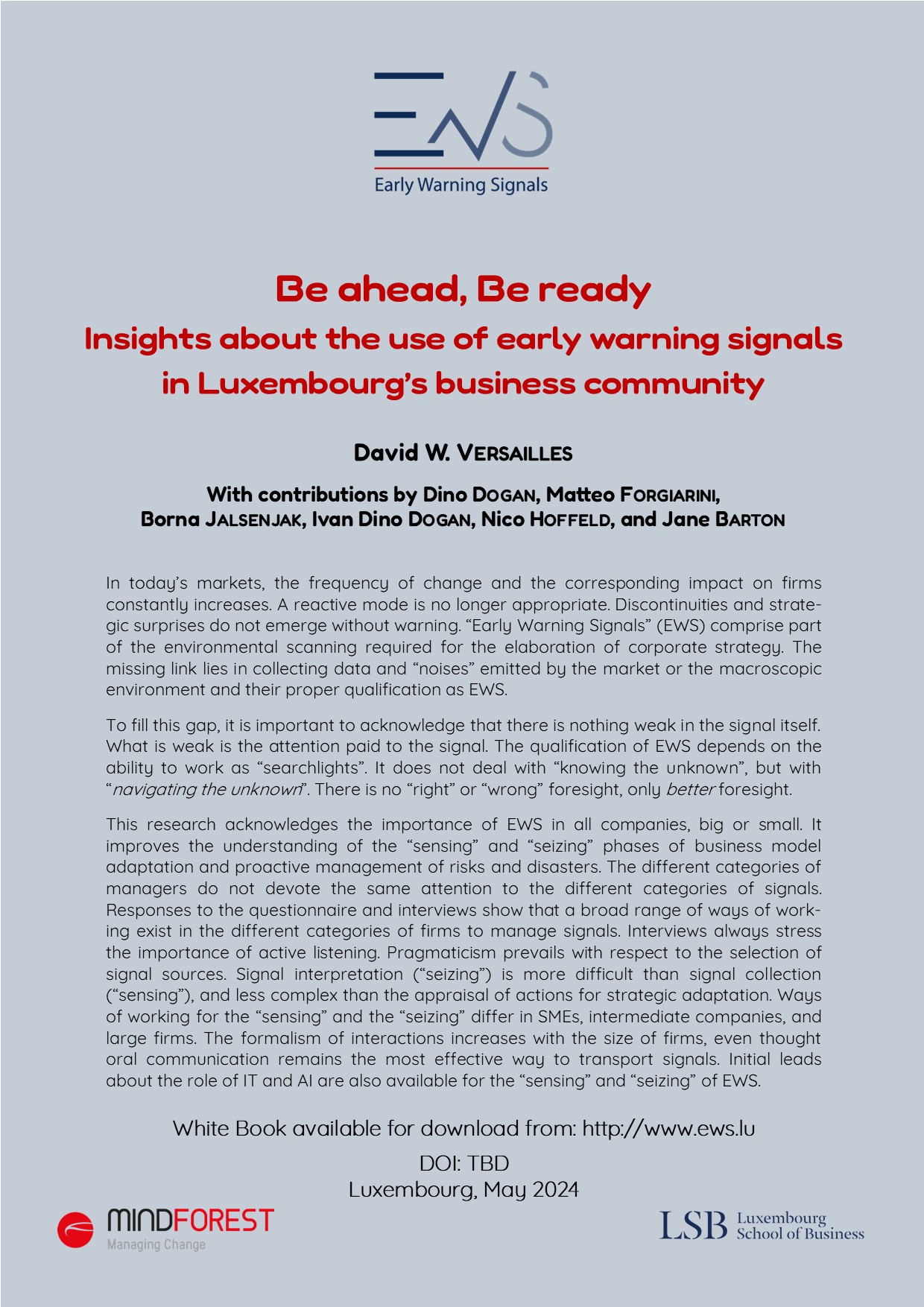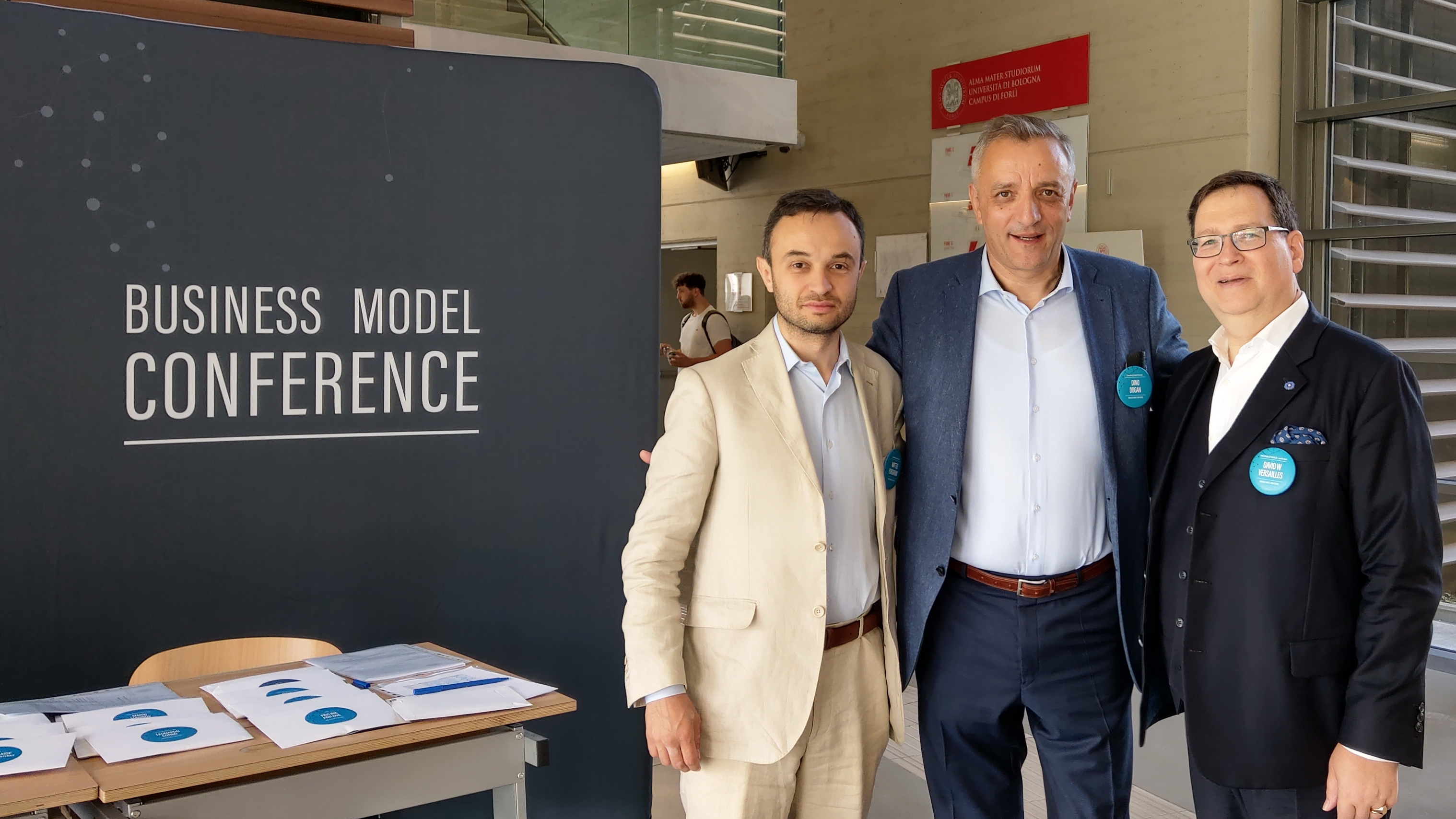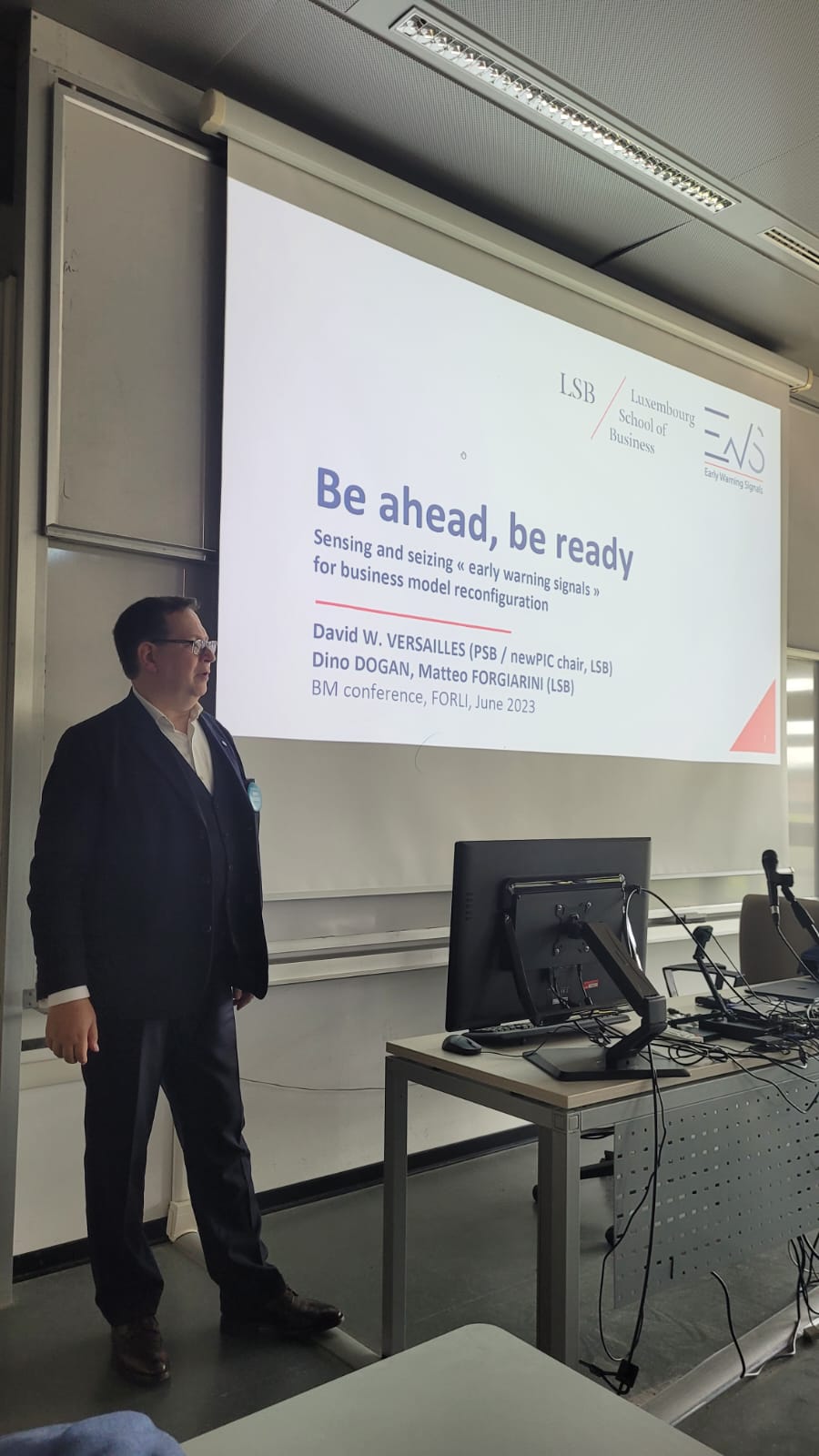Research project sponsored by Luxembourg School of Business and MindForest
Early Warning Signals
Phase 1: Execution between June 2021 and Spring 2024. Reports available in Fall 2024.
Context » Cases » Our team » Events » Downloads » Publications » Valorization » Related projects »
Here is the direct URL to connect to the project page: http://www.ews.lu
unique views of this page
(for
displays).

Context
In today's market, the frequency of change and the corresponding impacts on companies constantly increase. A reactive mode is no longer appropriate. However, discontinuities and strategic surprises do not emerge without warning. Early warning signals comprise part of the environmental scanning required for the elaboration of corporate strategy. However, the management of strategic surprises is still poorly addressed. The missing link lies in collecting data and noises emitted by the market or the macroscopic environment and their proper qualification as early warning signals.
To fill this gap, it is first necessary to acknowledge that there is nothing weak in the signal itself. What is weak is the attention paid to the signal when it is still possible to make decisions, and avoid reactive modes endangering the business model. The qualification of early warning signals depends on the ability to work as a theorist who operates a searchlight. The question under analysis does not deal with knowing the unknown; it deals with navigating the unknown. To take the future more seriously, it is necessary to acknowledge that there is no right or wrong foresight: there is only better foresight. Early warning signals serve the process of making the most appropriate decisions in due time.
Results collected with the questionnaire and the interviews.
This research acknowledges the relevance of early warning signals (EWS) in all companies, big or small. It improves the understanding of the ways of working about the sensing and seizing phases leading to business model adaptation and proactive management or risks and disasters.
- All categories of managers, and all categories of companies, scrutinize EWS. However, they do neither devote the same attention to signals, nor focus on the same categories of signals.
- Responses to the questionnaire and interviews explain that a broad range of ways of working exist in companies to manage signals. Pragmaticism prevails with respect to the identification of signals from all potential sources. Interviewees always stress the importance of active listening.
- Signal interpretation is more difficult than signal collection, and less complex that the appraisal of the subsequent actions for strategic adaptation.
- Ways of working for the sensing and seizing differ in SMEs, intermediate companies, and large companies. This project shows that the formalism of interactions increases with the size of companies, even though oral communication remains the most effective way to transport signals in all sizes of organizations.
- Direct interactions between senior managers in trusted and neutral environments represents a key success factor for the appraisal of signals to feed business model adaptation.
- Some initial conclusions are also available about the role of IT systems and AI for signal computation.

Field research
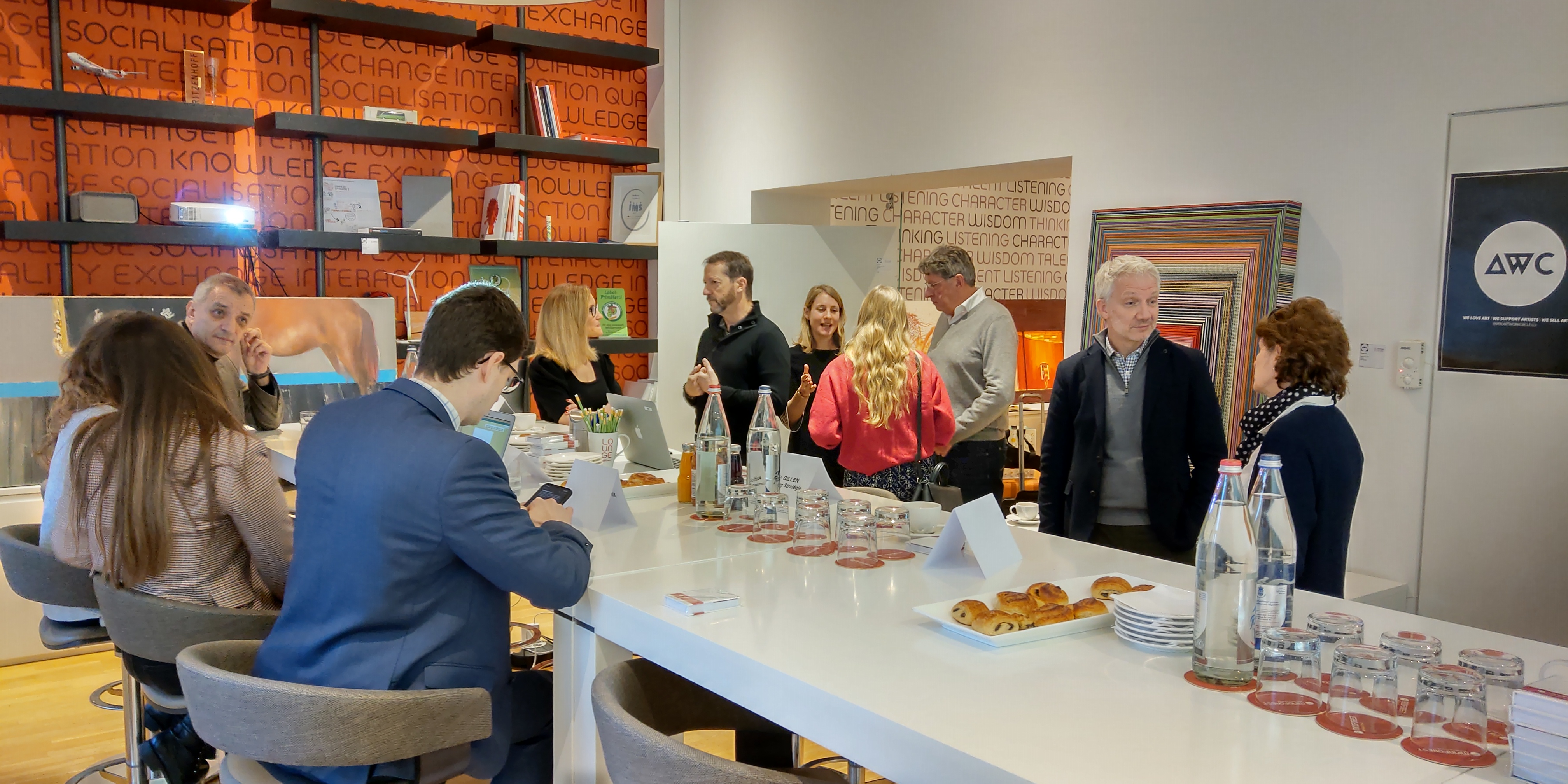
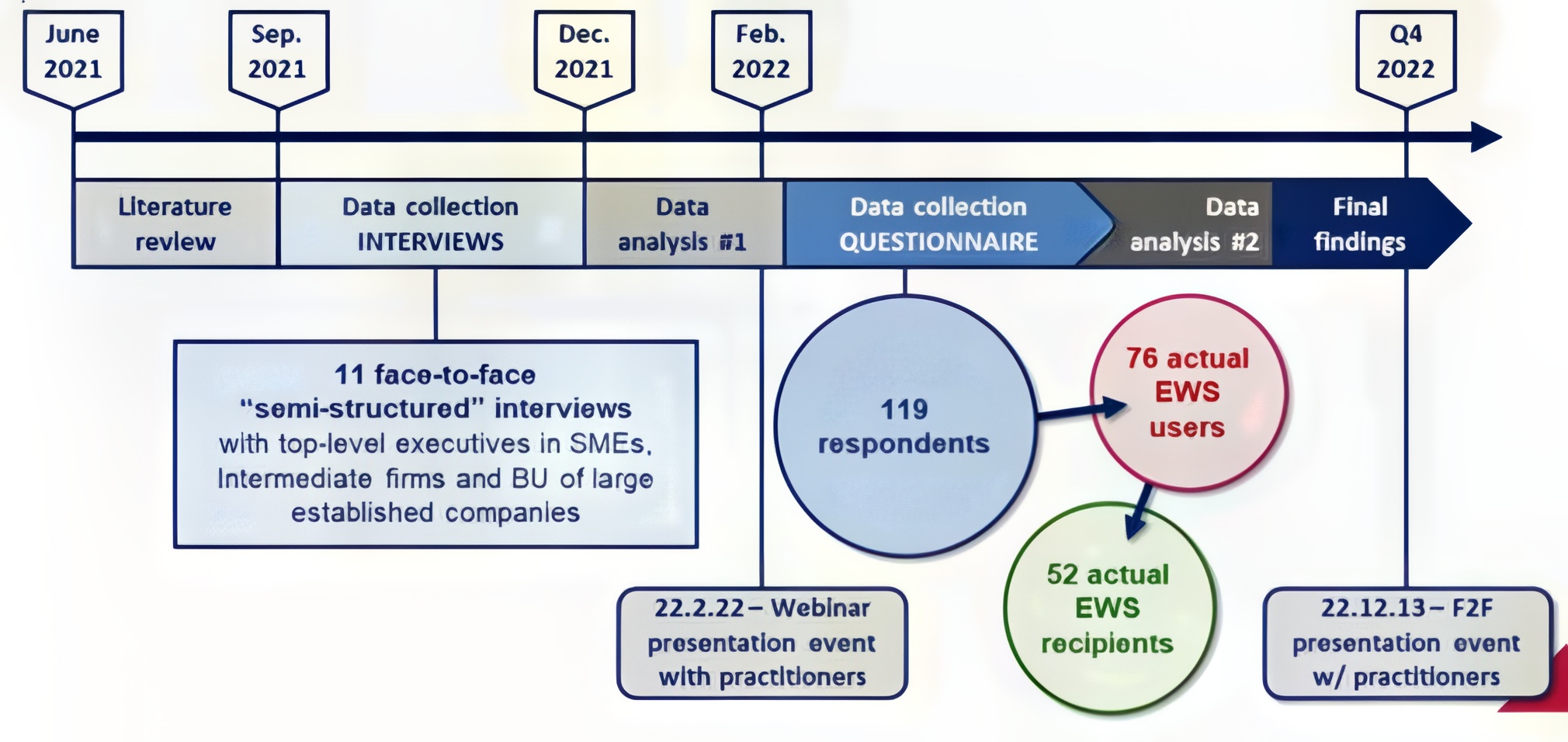

For this research project, we have installed a field research protocol based on semi-structured interviews, participant observation and a questionnaire, with systematic triangulation of perspectives associated with the different categories of stakeholders active in Luxembourg's business community. The project started in June 2021 among the Luxembourg business community.
Luxembourg's business ecosystem is interesting because firms have retrospective experience with the flooding that occurred in July 2021 in Luxembourg and neighboring regions in Belgium and Germany, as well as with the COVID COVID-19 pandemic, thus leading to improved awareness for business model adaptation. Luxembourg's business community also operates with a cross cross-cultural workforce (3 borders region; a significant number of foreign residents; 250,000 trans trans-border daily commuters), thus reshaping the reference to localism ” and mandating a zoom out from personal cultural references.
Data collection articulated two phases: semi semi-structured interviews (incl. participant observation) and a questionnaire operated with SurveyMonkey. Both activities were operated in the Luxembourg business community after the end of the COVID-19 pandemic. The figure (reproduced from the 2024 White Book) provides an overview of the research protocol and the three subsamples in this investigation.
25+ interviews were conducted between September 2021 and January 2022, out of which 11 were codified and used for the elaboration of the White Book. Different categories of managers (owners, CxOs, and middle managers) were interviewed in various categories of firms (startups, SMEs, Medium Medium-sized companies, and global business units from international firms). Interviews deliberately did not focus on front front-line employees. The codification of interviews was 80% completed before starting the questionnaire design. A specific webinar was organized with interviewees and practitioners from the Luxembourg business community to present interim results and collect feedback at the end of the interview phase.
The questionnaire was administered through SurveyMonkey and disseminated through social media (LinkedIn) to the local business community. It included explicit questions about the respondents ’ locations and citizenship. Specific invitations to respond were listed in newsletters sent by the Luxembourg Chamber of Commerce and other local communities. Questionnaire responses were collected between Feb. 22nd and June 26th, 2022. Microsoft Excel and R were used for data analysis. The questionnaire was designed in English.

Research team
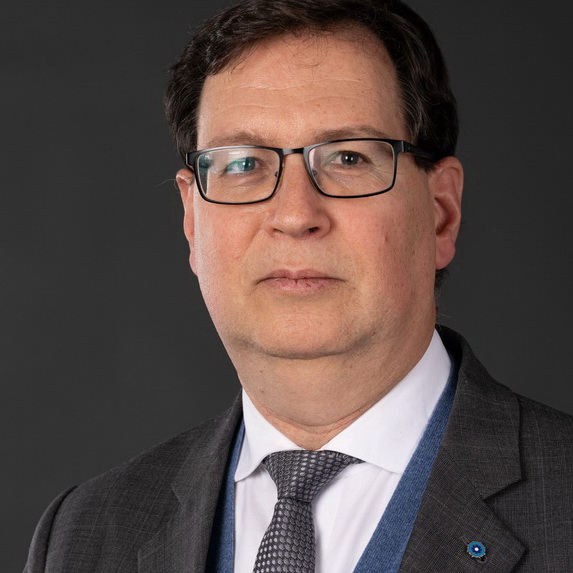

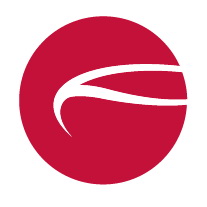
- Principal investigator and Lead researcher: David W. VERSAILLES
- Project managers: David W. VERSAILLES, Dino DOGAN, and Nico HOFFELD, supported by Mrs Jane BARTON
- Data collection: David W. VERSAILLES, Dino DOGAN, Matteo FORGIARINI, Borna JALSENJAK
- Qualitative data codification: David W. VERSAILLES, Dino DOGAN, Matteo FORGIARINI, Borna JALSENJAK, Ivan D. DOGAN
- Support to qualitative data codification (during validation seminars) by Nico HOFFELD
- Quantitative data manaegement: David W. VERSAILLES and Matteo FORGIARINI
- Proof editing and quality management: Jane BARTON supported by David W. VERSAILLES
- DAO and design of final deliverables: ISK CONSULTING SA and David W. VERSAILLES
- Pictures and artwork in the deliverables: David W. VERSAILLES (represented by ISK CONSULTING SA)

Presentation events
Presentations
- Feb. 22nd, 2022:
Presentation event with practitioners interviewed during the 1st data collection phase
Program:- Presentation of interim results available after the codification of interviews,
- Validation of interpretations and discussion of interim results
Information:
info (at) dwv.lu

Deliverables and downloads
WHITE BOOK (in English)
Be ahead, Be ready
Insights about the use of Early Warning Signals
in Luxembourg's business community
by David W. VERSAILLES,
with contributions by Dino DOGAN, Matteo FORGIARINI,
Borna JALSENJAK, Ivan Dino DOGAN, Nico HOFFELD, Jane BARTON
DOI: tbd
125 pages, date: May 2024
- Full report in English (125 p),
Definition 300 dpi
High quality printing - 100 Mo
- Full report in English (125 p),
Definition 96 dpi
Low quality printing
On-screen display, 5.0 Mo

Academic publications and contributions to conferences
Submissions to conferences will start with the academic year 2022-2023.
Presentations will be posted here once validated/ accepted by the conferences and journals...
- 2023 Business model conference, Forli (FO), Italy
by David W. Versailles, Dino Dogan and Matteo Forgiarini
"Be ahead, be ready.
Sensing and seizing early warning signals for business model reconfiguration"

Other publications
We mention here all publications in relation with this research project that are not associated with peer reviewed processes.

Related projects
Projects respectively commissionned by...
List of projects...
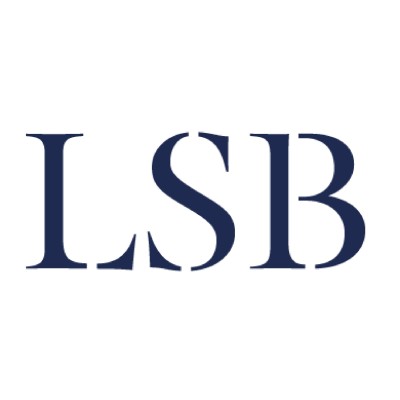

Investigation of the use of Early Warning Signals in the Grande Region (EWS2)
direct url : http://www.ews.lu
